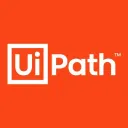Intelligent Enterprise Automation Map
The most extensive market map for enterprise automation software
OpenOcean's automation database represents the ever-expanding landscape of enterprise automation software. For our new 2023 market map, we have meticulously curated a collection of over 810 automation companies, each valued at over $100M, along with the most promising early-stage startups in this domain.
The map serves as a showcase for the latest and most exciting technologies, featuring both established and emerging players, while also shedding light on trends and shifts within the enterprise automation domain. Read more on our blog
* Please note that to get the best experience of the map, view this page on a larger screen.
OpenAI
Investors
Developer of an artificial intelligence-based research and deployment platform intended to ensure that artificial general intelligence benefits all of humanity. The company develops and directs artificial intelligence and also engages in policy work, education, and outreach as well as it's API can be applied to any language task, enabling clients to easily develop skills and gain knowledge in artificial intelligence with highly autonomous systems that outperform humans at the most economically valuable work.
Website
https://www.openai.comUnited States
Applied Systems
Investors
Developer of cloud-based insurance software designed for the insurance industry. The company specializes in insurance automation software for agency and brokerage management systems that automate the exchange of information and data throughout the insurance life cycle between agencies, brokerages, carriers and their clients, enabling clients to have greater access to information and streamlining workflows.
United States
ION Group
Investors
Developer of mission-critical trading and workflow automation software designed for financial institutions, corporations, central banks and governments. The company's proprietary platform provides fixed income traders with an integrated view of global electronic, fixed income, derivatives and futures markets through a powerful, user-friendly interface and offers advanced trading functionality along with tools for system administration and real-time monitoring, enabling clients to automate the full trade lifecycle and maximizing access to liquidity.
Website
https://www.iongroup.comUnited Kingdom
HelpSystems
Investors
Developer of IT management software, designed to automate business and IT processes. The company's automation software helps to manage repetitive tasks, and centralized job scheduling through robotic process automation for the desktop easy for any user, along with document management software that helps companies go paperless by digitally managing the entire lifecycle of their documents and data, helping businesses increase operational efficiency, reduce downtime, and streamline mission-critical IT and business processes.
Website
https://www.helpsystems.comUnited States
UiPath (NYS: PATH)
Investors
UiPath Inc creates an end-to-end platform that provides automation with user emulation at its core. Its platform is built to be used by employees throughout a company and to address a wide variety of use cases, from simple tasks to long-running, complex business processes. It generates revenue from the sale of licenses for its proprietary software, maintenance and support, and professional services. It generates a majority of the revenues from the US, followed by Romania and the rest of the world.
Website
https://www.uipath.comUnited States
.webp)





